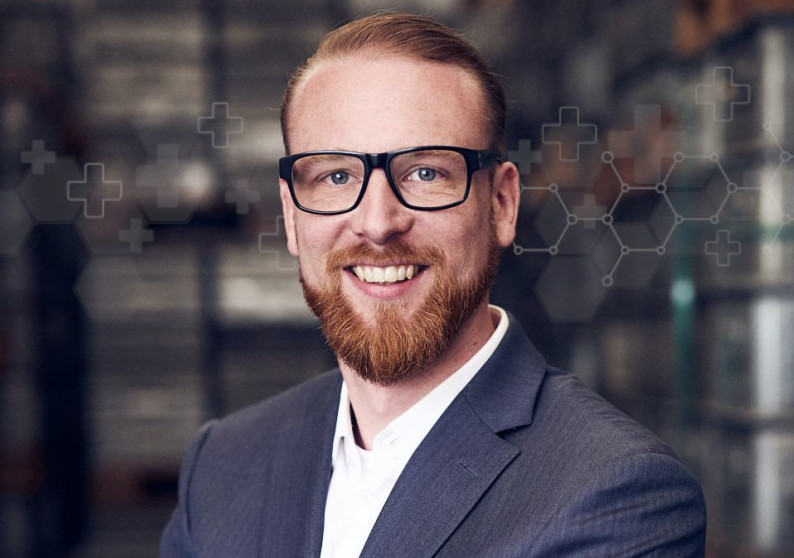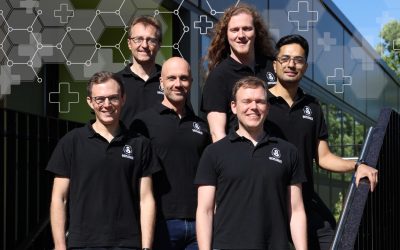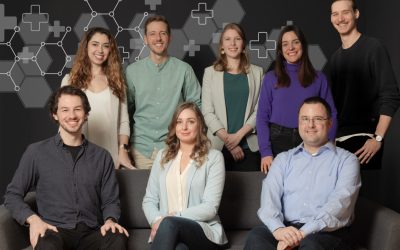The MII is best known for its “4C Accelerator” – and rightly so: more than 20 teams have now successfully completed the program and are on their way to help shaping the healthcare market of tomorrow with their innovative products. But as the name of the Medical Innovations Incubator (MII) reveals, it is more than just an accelerator. Why? Our CEO Ingo Hämmerle explains this by answering 7 questions about our work.
At the start: where does an accelerator end, where does an incubator begin?
Ingo Hämmerle: Difficult to answer, because in practice the terms are used differently. I am aware of several definitions. However, I don’t think any of those have really caught on.
I would therefore like to briefly explain how we interpret it. As Medical Innovations Incubator GmbH, we want to offer everything that early-stage startups need to get off to a good, fast, and stable start. In doing so, we do not focus on premises. We offer free and fee-based services, know-how, processes as well as networking with partners to help solve all further issues. In some cases, our support goes as far as interim management, where we temporarily take over the management or the areas of regulatory affairs and clinical affairs, for example. The startup sync2brain is one of those cases. During interim management, we advanced the project, conducted contract negotiations with suppliers, searched for a CEO – and found one in Ramona Samba – and supported the team until the management was onboarded.
As an incubator, an accelerator is of course a must. In our case, this is the “4C Accelerator Tübingen”, which runs as a cohort program with a defined time period and a clearly structured curriculum developed by us.
The 4C concept and Regulatory Thinking® are the cornerstones of the MII – how did this support concept come about?
IH: The 4C Concept and Regulatory Thinking® are nothing more than the consistent development from many years of experience of the Stiftung für Medizininnovationen (Foundation for Medical Innovations) and the MII in mentoring and supporting startup projects in this complex industry – the medical life sciences.
We have learned over time that the common methods and support formats are just as valuable for our startups, but unfortunately not sufficient. We have been searching for answers and have cast this search into a research project. The result is a focus on the issues that need to be understood and trained in a manageable way – the 4Cs: Commercialization, Certification, Clinical Studies, and Copyright. In addition, we know that making a virtue out of necessity can create a competitive advantage. That is what we try to convey with the Regulatory Thinking® approach. Regulatory requirements are simply part of the game. If you better process and implement this fact, more speed, less costs and thus a clear competitive advantage will be the result.
What distinguishes this support concept?
IH: I would say it can be categorized under the heading of “startup support rethought and highly specialized” with
- clear focus,
- depth of content,
- networked understanding,
- qualitative network, but
- without idea generation and optimization,
- without technical development of products and
- less colorful, i.e., without TikTok marketing and the like,
to summarize. We work complementary to other support offers, as we do not have some “typical” things and contents in our portfolio. Therefore, we focus all offers on optimal and individual support in the 4Cs and in Regulatory Thinking® through
- a specialized team,
- an equally specialized network and
- the development of business models with the help of regulatory requirements.
What role does networked understanding play in this?
IH: Networked understanding is a real key and extremely important. Our working hypothesis is that it is only possible to develop a stable business model and business plan in the medical life sciences if you have a proper understanding of the 4Cs and their interrelationships.
Therefore, our startup coaches are not specialists in a single C – for that we have specialized partners. Their job is to anticipate the impact of changing one C on the other Cs and to help the startups make sure that everything is well thought out in the end.
A good concept alone is not enough – where does the expertise come from?
IH: As the Stiftung für Medizininnovationen and MII, we have after all been active since 2014 and have accordingly seen, tried and learned a lot. Furthermore, we have employees with different backgrounds: from science to executives from industry. In addition, we have a high-quality network with diverse expertise. Our claim as a platform for medical innovations is not only to refer, but to stay deeply involved in the content of the cases and to participate to some extent. This is why we cannot work with an infinite number of startups, but only with a small number.
This is “training on the job”, so to speak. New knowledge is then also passed on within the team as part of internal workshops. In addition, we are represented in industry-relevant network organizations, working groups and consortia.
How is the support concept implemented?
IH: As already slightly hinted before, this is achieved on the one hand through our “4C Accelerator” – quasi our flagship offering. However, our other services and products are in no way inferior to this in terms of quality. Everything revolves around the 4Cs and Regulatory Thinking® – from coaching to the implementation of a quality management system (QMS) and interim management. However, our services are always very individually tailored to the startups. Because we know: no two cases are the same.
Why is the MII also a platform for all those who are enthusiastic about medical innovations?
IH: The foundation wants to promote medical innovations. These also arise in established companies, in science or in everyday life. Without funding, however, even the best idea will come to nothing. This is why we need investors and established companies on the platform. Talents are just as important. Especially those who would like to be entrepreneurial or create something, but do not have a product idea themselves.
This is where the platform idea comes from. Only if we bring together all those who are enthusiastic about medical innovations can we realize the vision of Prof. Eberhart Zrenner, founder and chairman of the foundation.
Do you have any further questions about the MII, our support concept or our services?
Contact us!





